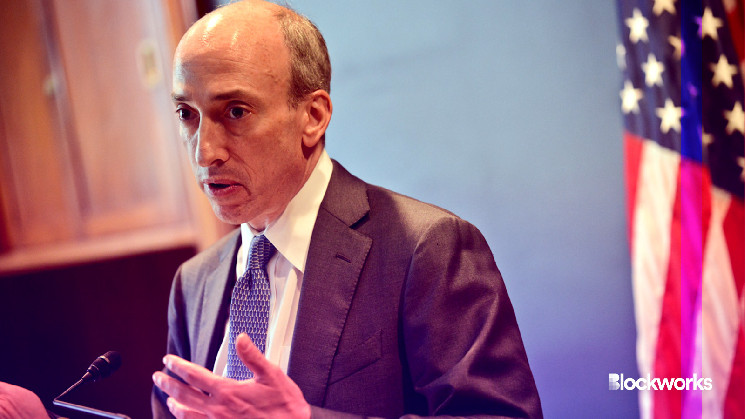In a hearing on the fiscal 2025 budgets for both the Securities and Exchange Commission and the Commodity Futures Trading Commission, crypto was — of course — one of the big topics discussed.
Senator Bill Hagerty, R-TN asked SEC Chair Gary Gensler about the timeline for a potential ETH ETF, to which Gensler seemed to confirm that the products would face final approval this summer.
“I would envision sometime over the course of the summer” that the individual issuers would be approved, Gensler answered.
This lines up with previous Blockworks reporting from Ben Strack, who wrote Wednesday that the SEC is still working to get comments back from the potential issuers.
Putting aside the discussion on when a spot ETH ETF could hit the market, Hagerty also brought up the question of whether or not ETH is a commodity.
Read more from our opinion section: Ether is the Schrödinger’s cat of crypto
Gensler danced around the answer, failing to give a clear yes or no. Chair Rostin Behnam of the CFTC, however, answered a very simple yes.
Gensler, in his response, said that his agency approved the ether ETFs and that his staff was working with the individual ETF issuers to ensure that the S1s — the registration statements — can become effective and thus allow the funds to fully launch.
“We actually, as an agency, did approve Ethereum [ETFs]. Partially — the approval is not complete,” he said. Despite the lack of clarity in Gensler’s response, the answer did seem to speak to the SEC’s thinking on ETH since the proposed, and as Gensler pointed out, partially approved products would be classified similarly to the bitcoin ETFs. The products themselves are made up of commodities or assets, meaning that ETH could be put in the commodities basket.
When asked whether or not the CFTC could take on at least some aspects of the crypto market, Behnam said there’s currently “a gap in regulation over non-security commodity tokens.”
Read more: CFTC’s Behnam says Prometheum’s ETH stance could create inter-agency conflict
“Our enforcement record at the CFTC, I think, demonstrates our success and our expertise. Over the past 10 years, we brought 135 crypto cases, we’ve brought in billions of dollars, and we’ve successfully policed a market where we don’t have direct authority or jurisdiction, which ultimately leads to all of this fraud and rampant abuse in markets, and ultimately public mistrust, lack of confidence and loss of funds. So we are one of two market regulators in the US financial system. We are adequately equipped to oversee the markets that we traditionally perceive,” he continued.
He did note that the CFTC would need a budget increase if handed responsibility over the crypto markets.
Gensler, when asked the same question, seemed hesitant and responded that the SEC has the “disclosure-based” regime that the CFTC lacks.
 blockworks.co
blockworks.co
